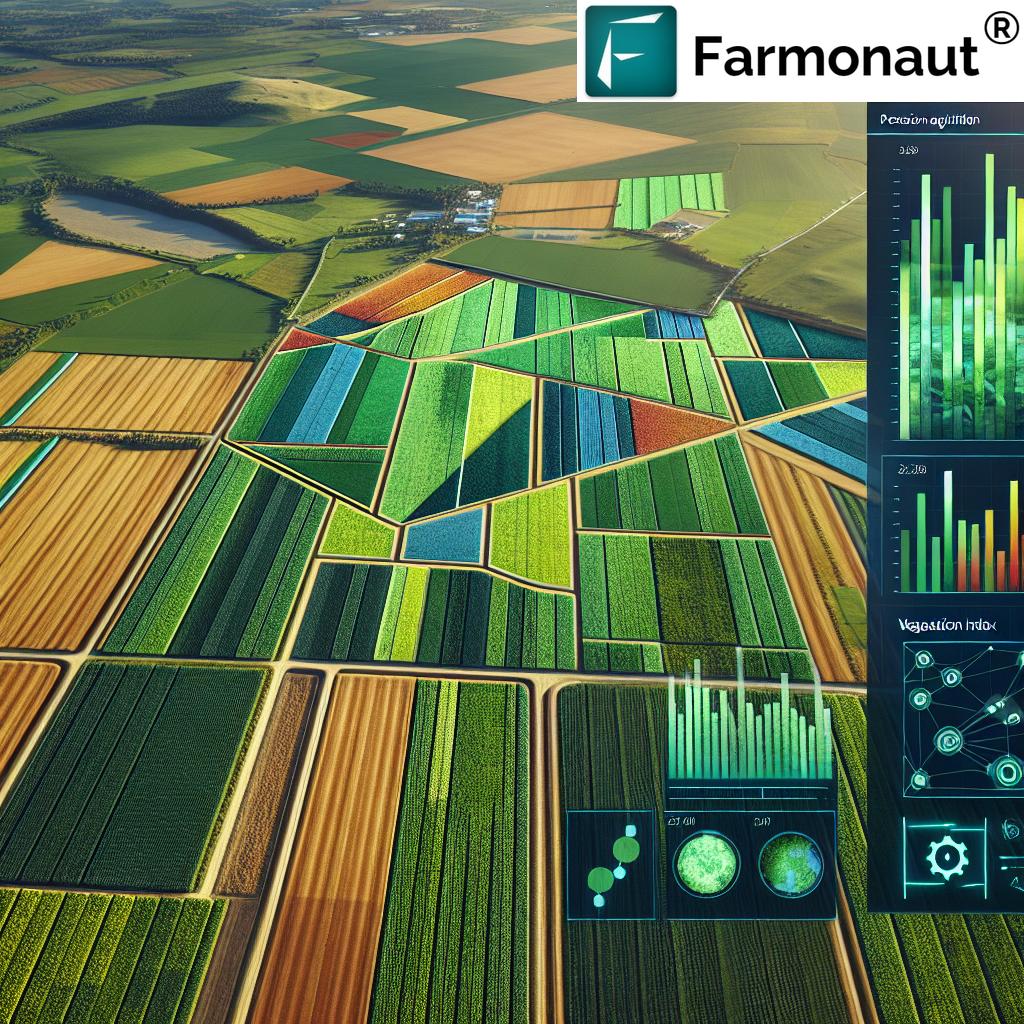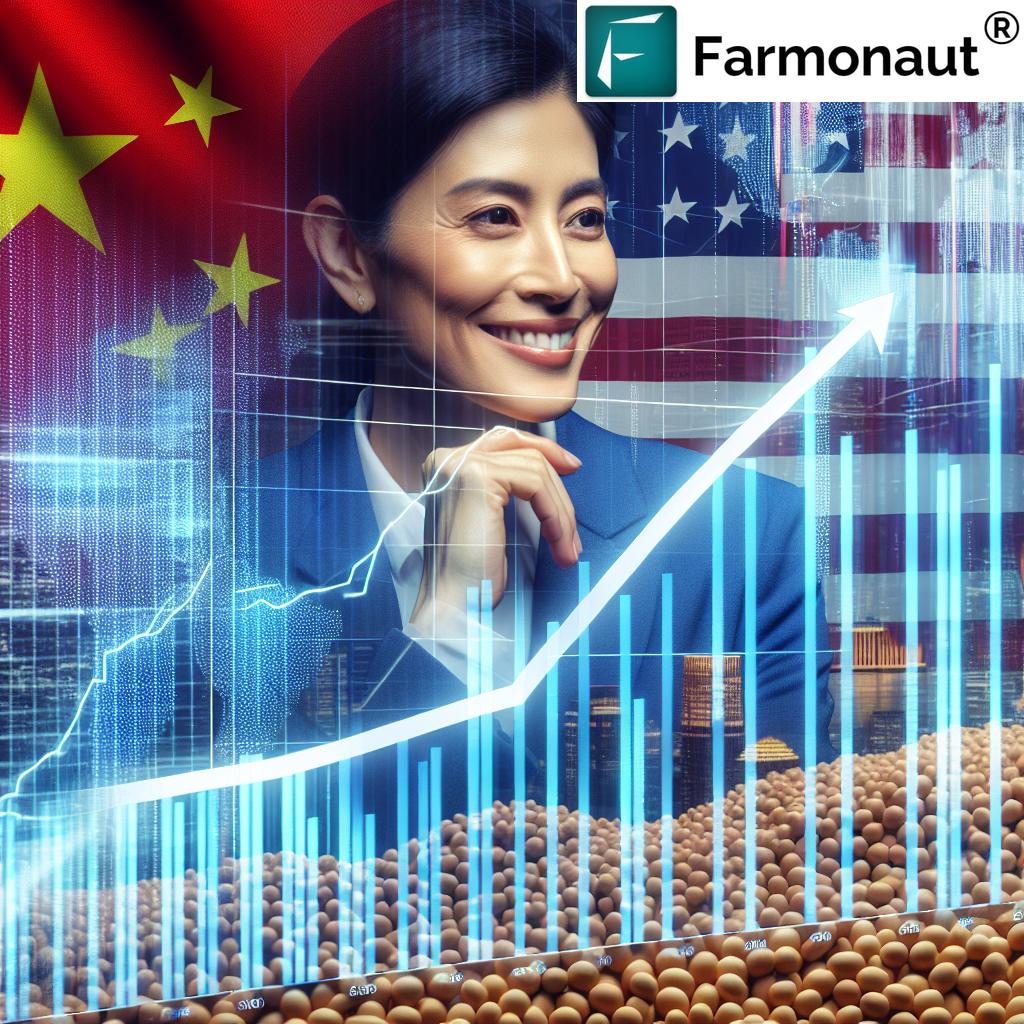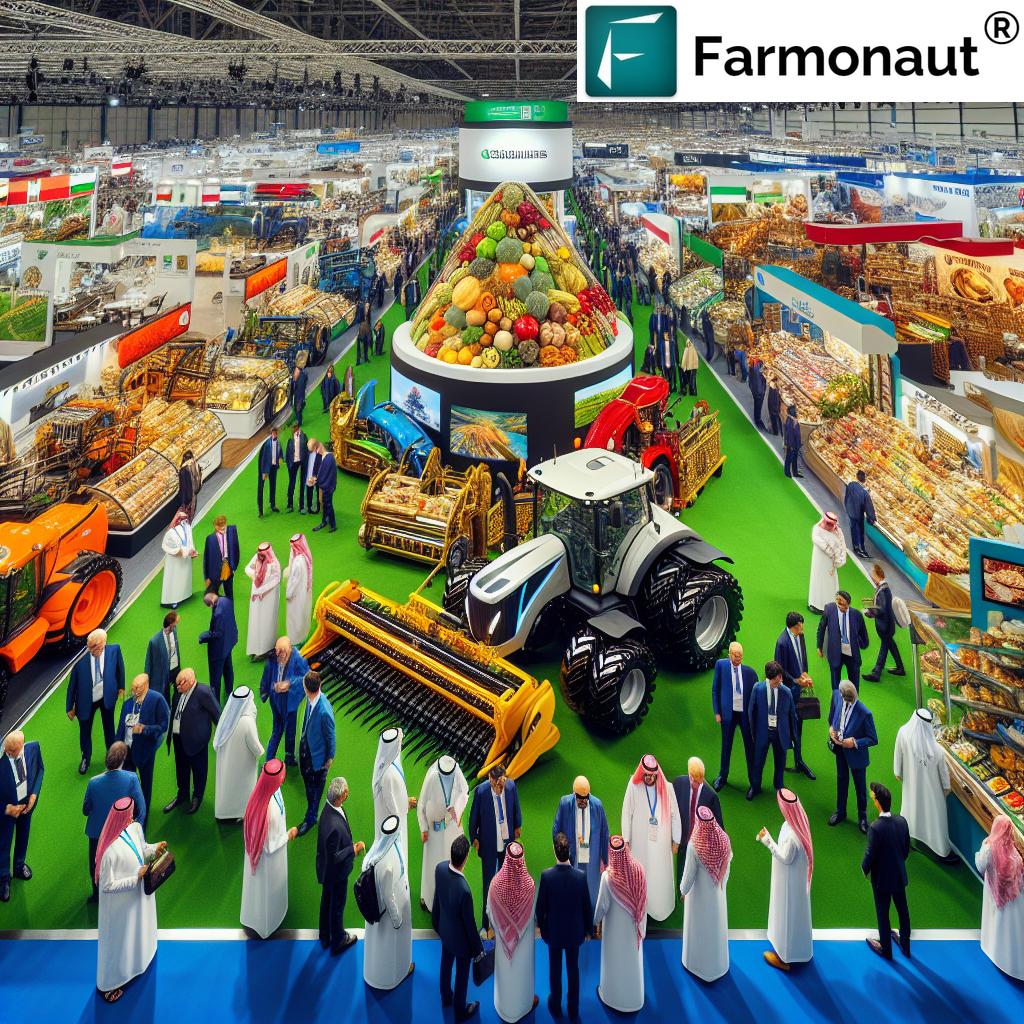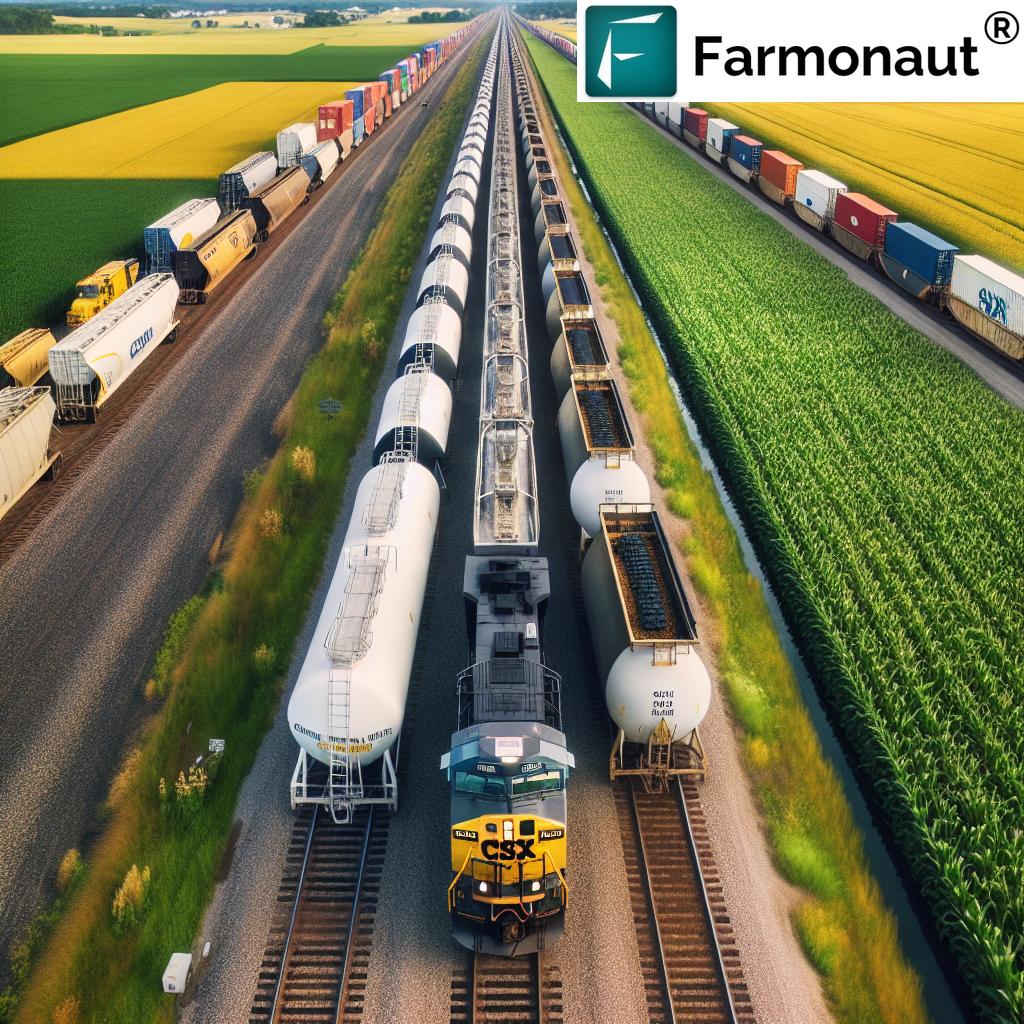Explosive: French Farmers Ignite Nationwide Protests Against EU-Mercosur Deal and Agricultural Crisis

In a dramatic turn of events, French farmers are set to launch nationwide protests next month, igniting a firestorm of discontent across the agricultural landscape. The catalyst for this upheaval? The looming EU-Mercosur trade deal and an ongoing farming crisis in France that has reached a boiling point.
FNSEA Spearheads Nationwide Agricultural Demonstrations
The FNSEA union, France’s primary agricultural syndicate, has taken the lead in organizing these French farmers EU-Mercosur protests. Arnaud Rousseau, president of the FNSEA, announced on Tuesday that the union will orchestrate FNSEA nationwide agricultural demonstrations starting mid-November. The exact date and nature of these actions remain to be determined, but if history is any indicator, we can expect significant disruptions.
“The new factor and trigger is the renewed incoherency at European level, as shown by a barely disguised explanation that we are going to end up signing the Mercosur deal,” Rousseau stated, highlighting the crux of the farmers’ grievances.
The EU-Mercosur Trade Deal: A Contentious Issue
At the heart of this agricultural maelstrom lies the proposed EU-Mercosur trade deal. This agreement, if ratified, would create a free trade area between the European Union and the Mercosur bloc, which includes Brazil, Argentina, Paraguay, and Uruguay. While proponents argue it would boost trade and economic growth, French farmers fear it could lead to an influx of cheaper agricultural imports that don’t meet stringent EU production standards.
Recent reports suggest that negotiations are progressing rapidly, with a potential conclusion before year’s end. Brazil, a key Mercosur member, has expressed readiness to sign the agreement as early as November during a meeting of major economies it’s set to host.
French President Emmanuel Macron has consistently opposed finalizing this trade deal, aligning with the concerns of the country’s agricultural sector. However, the apparent momentum towards its conclusion has reignited fears and frustrations among French farmers.
The Broader Context: European Union Farming Crisis
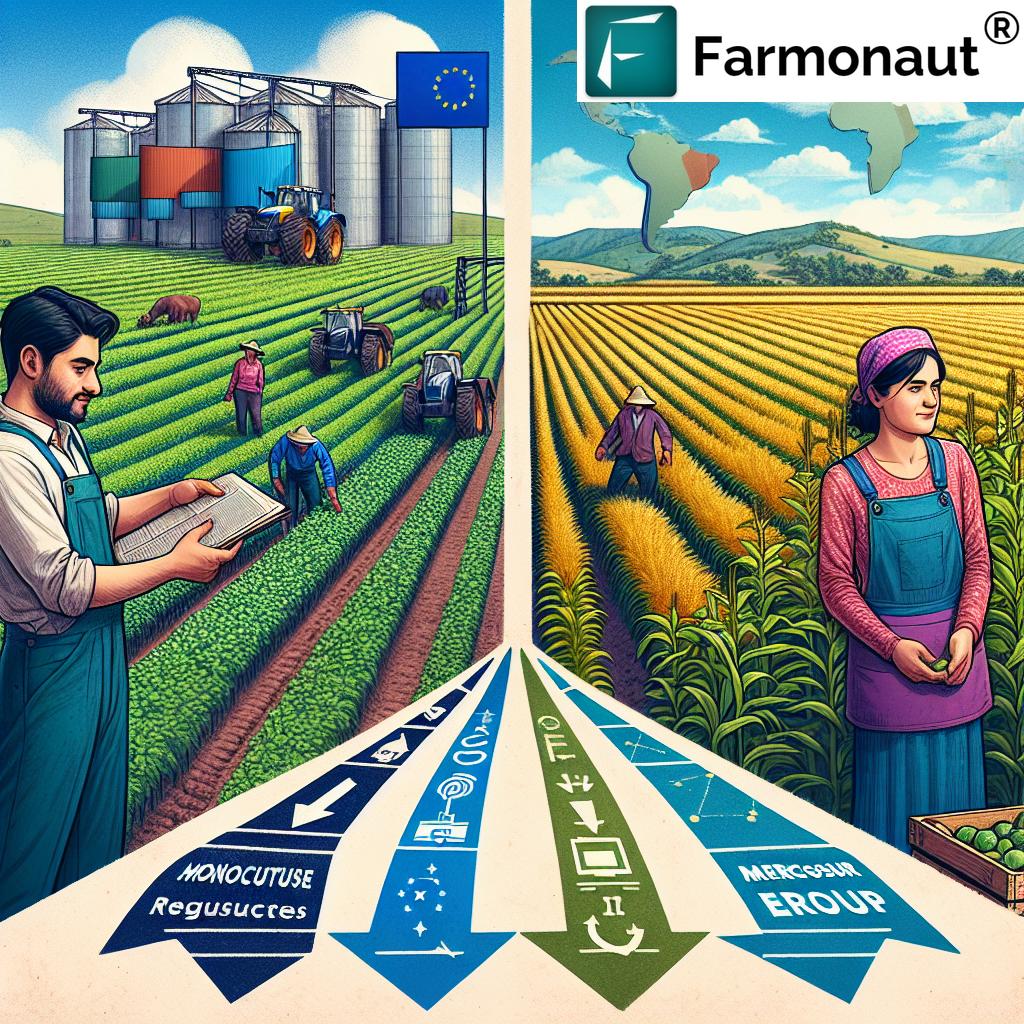
The impending protests are not solely about the Mercosur deal. They’re a manifestation of a broader European Union farming crisis that has been simmering for months. French farmers, like their counterparts across the EU, are grappling with a perfect storm of challenges:
- French agricultural import competition: Cheaper imports, including those from EU ally Ukraine, have intensified competition in domestic markets.
- EU farming regulations impact: A perceived regulatory burden on EU producers has increased operational costs and complexity.
- Weather-related harvest setbacks and livestock disease outbreaks have further strained farm incomes.
- Political deadlock following a snap election earlier this year has hindered effective policy responses.
These factors collectively contribute to the French farmers’ economic challenges, creating a volatile atmosphere ripe for protest.
The Specter of Past Protests
The announcement of new protests evokes memories of the large-scale demonstrations that swept across France and Europe earlier this year. Those actions, fueled by similar grievances, saw farmers employing dramatic tactics such as blocking roads with tractors and setting bales of hay ablaze.
As tensions rise once again, there’s palpable concern about the potential scale and impact of the upcoming demonstrations. The agricultural sector’s ability to disrupt transportation and supply chains means these protests could have far-reaching consequences for the French economy and daily life.
France Mercosur Trade Deal Opposition: A Deeper Look
The France Mercosur trade deal opposition is rooted in several key concerns:
- Agricultural Standards: French farmers argue that Mercosur countries often have lower EU agricultural standards, particularly in areas like environmental protection and animal welfare.
- Price Competition: There’s fear that an influx of cheaper South American products could undercut French agricultural goods in the domestic market.
- Food Security: Some argue that increased reliance on imports could compromise France’s food sovereignty and security.
- Cultural Preservation: There’s a strong sentiment about preserving traditional French farming practices and rural landscapes, which some feel could be threatened by increased international competition.
These concerns underscore the complex interplay between trade policy, agricultural practices, and national identity that characterizes the French farmers’ EU-Mercosur protests.
The Role of French Farming Regulations
French farming regulations, often intertwined with EU directives, play a significant role in shaping the agricultural landscape. While these regulations aim to ensure food safety, environmental protection, and animal welfare, they also impose costs and operational constraints on farmers.
The perceived imbalance between stringent domestic regulations and potentially looser standards for imported products is a key driver of discontent. Farmers argue that this regulatory environment puts them at a competitive disadvantage, especially when faced with imports from countries with less rigorous standards.
Looking Ahead: Potential Impacts and Solutions
As France braces for another round of agricultural protests, the potential impacts on various sectors are considerable. Disruptions to transportation, food supply chains, and general economic activity are all possibilities, depending on the scale and nature of the demonstrations.
Addressing the French farmers’ economic challenges and resolving the impasse over the EU-Mercosur deal will require nuanced policy approaches and potentially difficult compromises. Some potential avenues for resolution could include:
- Renegotiating aspects of the EU-Mercosur deal to include stronger safeguards for European farmers
- Implementing targeted support measures for sectors most affected by international competition
- Reviewing and potentially reforming certain EU farming regulations to reduce the regulatory burden while maintaining high standards
- Investing in innovation and technology to enhance the competitiveness of French agriculture
As these events unfold, staying informed about agricultural conditions and market dynamics is crucial. Farmers and stakeholders can leverage tools like Farmonaut’s satellite-based monitoring services to gain valuable insights into crop health, weather patterns, and more.
For those interested in accessing agricultural data programmatically, Farmonaut’s API offers robust capabilities. Developers can find comprehensive documentation at the API Developer Docs.
Mobile users can access Farmonaut’s features on the go:
Conclusion: A Pivotal Moment for French Agriculture
The impending French farmers protests against the EU-Mercosur trade deal and ongoing agricultural crisis mark a critical juncture for France’s farming sector. As the nation grapples with balancing international trade commitments, domestic agricultural interests, and the broader European Union agriculture landscape, the outcome of these demonstrations could have far-reaching implications.
The actions led by the FNSEA union and its president Arnaud Rousseau will likely shape agricultural policy discussions in France and across the EU for months to come. As events unfold, it’s clear that finding sustainable solutions to address agricultural competition, regulatory challenges, and the economic viability of farming will be crucial for the future of French agriculture.
Stay tuned for further developments in this unfolding story, as France’s farmers take to the streets to voice their concerns and demand action in the face of significant economic and policy challenges.





